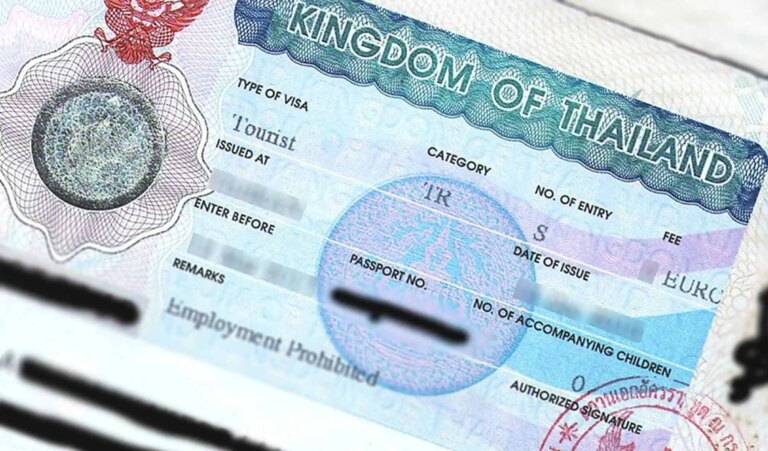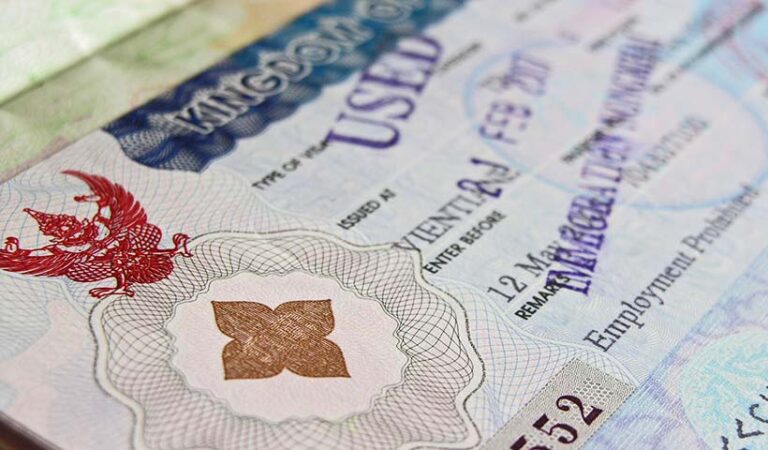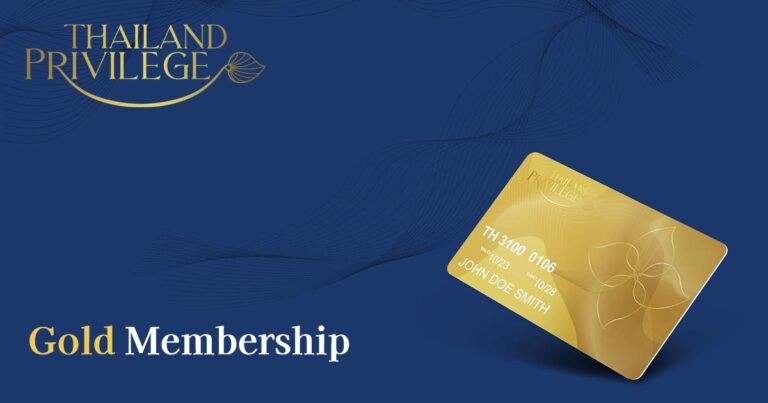Unveiling the True Costs of Living in Thailand: Expat Survival Guide
Welcome to 'Unveiling the True Costs of Living in Thailand: Expat Survival Guide.' This comprehensive article provides valuable insights into the expenses involved in living in Thailand, enabling expats to make informed financial decisions.
As a popular destination for expatriates, Thailand offers a unique culture, vibrant cities, and an affordable cost of living. However, understanding the true costs is crucial for maintaining a comfortable lifestyle without compromising financial stability.
Join us as we delve into key aspects such as rent, electricity, food, and transportation, shedding light on average costs and practical tips to manage expenses effectively.
Key Takeaways
- Rent prices in Thailand can vary significantly depending on factors such as location, type of housing, and amenities. In expat areas of Bangkok, the average cost of a 30 sqm studio apartment is THB13,000, while in business districts it can be as high as THB30,000. In Chiang Mai, the average cost of a 30 sqm unit is THB8,000. House rentals also vary, with average costs of THB30,000 in Bangkok, THB16,000 in Samut Prakan, and THB5,000 in rural Northeast Thailand.
- Electricity bills in Thailand can be influenced by air conditioning usage. Tips to reduce electricity costs include turning off the air conditioner at night and using a fan instead. The estimated electricity bill for a one-bedroom condo with air conditioning is THB2,000 per month, while for a multi-bedroom house with multiple air conditioners it can be as high as THB4,000 per month. The age and condition of the air conditioner can also impact electricity costs.
- The average monthly food cost for a single person in Thailand is THB10,000. Meal prices can vary based on location, with higher prices in city centers. For example, a plate of pork fried rice costs about THB65 on the outskirts of Bangkok, over THB100 in the heart of the city, and THB50 in Nan province. Food costs can be managed by eating at local markets, street food stalls, and affordable restaurants.
- Transportation costs in Thailand average around THB3,000 per month. Options for transportation include public transportation, motorbike taxis, taxis, and private vehicles. Costs can vary based on distance traveled, fuel prices, toll fees, and parking fees. Using public transportation and motorbike taxis can be more cost-effective than owning a private vehicle.
Rent: Factors to Consider
Importantly, when considering rent in Thailand, there are several factors to take into account. The cost of rent can vary depending on the city or province, the location within the city, the type of housing, the size of the unit, and whether it is furnished or unfurnished.
In Bangkok, for example, the average cost of a 30 sqm studio apartment in expat areas is around THB13,000, while in business districts it can go up to THB30,000.
In Chiang Mai, the average cost of a 30 sqm unit is THB8,000.
For those looking for a house rental, the average cost in Bangkok is THB30,000, while in Samut Prakan it is THB16,000, and in rural Northeast Thailand it can be as low as THB5,000.
These factors should be carefully considered when planning for accommodation expenses in Thailand.
Average Cost of Rent in Bangkok
When determining the average cost of rent in Bangkok, expatriates should take into account various factors such as location, size, and amenities of the property.
In expat areas, a 30 sqm studio apartment in Bangkok can cost around THB13,000, while in business districts, the average price can go up to THB30,000.
For those looking for a larger space, the average cost of a house rental in Bangkok is around THB30,000. However, if you are willing to live outside the city, the cost of rent significantly decreases.
For example, in Samut Prakan, the average cost is THB16,000, and in rural Northeast Thailand, it can be as low as THB5,000.
It is important to consider your preferred location and budget when searching for rental properties in Bangkok.
Average Cost of Rent in Chiang Mai
Additionally, expatriates should consider the average cost of rent in Chiang Mai when planning their budget for living expenses in Thailand.
Chiang Mai, the largest city in Northern Thailand, is a popular destination for expats due to its low cost of living and high quality of life.
The average cost of rent in Chiang Mai is significantly lower compared to other major cities in Thailand. For a 30 sqm unit, expats can expect to pay an average of THB 8,000 per month.
Factors such as location within the city, type of housing, and amenities can affect the rental prices. However, even with these factors taken into account, Chiang Mai remains an affordable option for expatriates looking to settle in Thailand.
Average Cost of House Rental in Different Areas
The average cost of house rental varies significantly depending on the location within Thailand. To give you an idea of the different costs in various areas, here is a table showcasing the average monthly rental prices for houses in three different locations:
| Location | Average Monthly Rental Price |
|---|---|
| Bangkok | THB30,000 |
| Samut Prakan | THB16,000 |
| Rural Northeast Thailand | THB5,000 |
As you can see, the cost of house rental in Bangkok is relatively higher compared to Samut Prakan and rural Northeast Thailand. This is mainly due to the higher demand and living expenses in the capital city. However, it's important to note that the rental prices may vary further depending on factors such as the size of the house, amenities, and proximity to city centers.
Electricity: Tips to Reduce Costs
Significantly, to reduce electricity costs, it is advisable to turn off the air conditioner at night and use a fan instead.
Air conditioning usage is a major factor that affects electricity bills in Thailand. By switching to a fan during the night, you can significantly reduce your monthly electricity expenses.
It is also important to consider the age and condition of your air conditioner, as older units may consume more electricity.
Additionally, practicing energy-saving habits such as unplugging appliances when not in use, using energy-efficient light bulbs, and limiting the use of high-energy consuming devices can also help reduce electricity costs.
With these tips in mind, expats living in Thailand can enjoy a comfortable living environment while keeping their electricity expenses under control.
Estimated Electricity Costs for Condos and Houses
For expats living in Thailand, it is important to estimate the electricity costs for condos and houses in order to plan and budget effectively. Here are some key points to consider regarding estimated electricity costs:
- Air conditioning usage significantly affects electricity bills, so it is important to be mindful of usage.
- One tip to reduce electricity costs is to turn off the air conditioner at night and use a fan instead.
The estimated electricity bill for a one-bedroom condo with air conditioning is around THB2,000 per month. For a multi-bedroom house with multiple air conditioners, the estimated electricity bill can be around THB4,000 per month. It is worth noting that the age and condition of the air conditioner can also impact electricity costs.
Food: Average Monthly Cost
Remarkably, the average monthly cost for food in Thailand is ฿10,000.00 for a single person. Meal prices can vary based on location, with higher prices in city centers. For example, a plate of pork fried rice costs about THB65 on the outskirts of Bangkok, over THB100 in the heart of the city, and THB50 in Nan province.
However, food costs can be managed by eating at local markets, street food stalls, and affordable restaurants. Thailand is known for its vibrant street food culture, offering a wide variety of delicious and affordable options. Additionally, cooking at home can also help save money. The cost of groceries is relatively low in Thailand, making it possible for expats to prepare their own meals using fresh local ingredients.
Food Prices in Different Locations
On a daily basis, meal prices can vary depending on the location, but higher prices are often found in city centers. When it comes to food prices in different locations in Thailand, here are some key points to keep in mind:
- City Centers: In bustling areas like Bangkok, you can expect to pay higher prices for meals compared to smaller towns or rural areas. The convenience and accessibility of city center locations often come with a premium.
- Outskirts and Provinces: On the outskirts of major cities or in provinces, you can find more affordable options for meals. Local markets and street food stalls are popular choices for budget-conscious individuals.
- Tourist Areas: In popular tourist destinations, prices for meals can be higher due to increased demand. It's important to be mindful of this when dining out in these areas.
Managing Food Costs
One effective strategy for controlling food expenses in Thailand is implementing smart budgeting techniques. By being mindful of your spending and making conscious choices, you can enjoy delicious meals without breaking the bank. Here are some tips to help you manage your food costs:
| Tip | Description |
|---|---|
| Set a budget | Determine how much you are willing to spend on food each month and stick to it. This will help you prioritize your purchases and avoid unnecessary expenses. |
| Cook at home | Eating out can be expensive, especially in tourist areas. By preparing your meals at home, you can save money and have more control over the ingredients you use. |
| Buy local produce | Local markets offer fresh and affordable fruits, vegetables, and other ingredients. Supporting local farmers not only helps the community but also saves you money. |
Implementing these strategies can help you maintain a reasonable food budget while still enjoying the diverse and flavorful cuisine that Thailand has to offer.
Transportation: Average Monthly Cost and Options
The average monthly cost of transportation and the available options are important considerations for expats living in Thailand. Here are some key points to keep in mind:
- Public transportation: Thailand has an extensive public transportation network, including buses and trains. The cost of using public transportation can vary, but it is generally affordable and convenient for getting around cities and provinces.
- Motorbike taxis: Motorbike taxis are a popular mode of transportation in Thailand, especially for short distances. They are a quick and inexpensive way to navigate through traffic, but safety precautions should always be taken.
- Taxis: Taxis are readily available in major cities and can be a convenient option for longer distances. It's important to ensure the meter is used to avoid overcharging.
Frequently Asked Questions
Are There Any Additional Costs Associated With Renting a Property in Thailand, Such as Maintenance Fees or Security Deposits?
Yes, there may be additional costs associated with renting a property in Thailand, such as maintenance fees or security deposits. These costs can vary depending on the specific property and its management policies.
How Do Rental Prices in Thailand Compare to Other Countries in Southeast Asia?
Rental prices in Thailand can vary depending on factors such as location, type of housing, and amenities. Compared to other countries in Southeast Asia, Thailand offers a range of affordable options for expats.
Are There Any Restrictions on Foreigners Renting Property in Thailand?
There are no specific restrictions on foreigners renting property in Thailand, but certain legal requirements must be met, such as obtaining a non-immigrant visa and signing a lease agreement. It is advisable to seek legal advice to ensure compliance with local regulations.
Can You Negotiate the Rent Price With Landlords in Thailand?
Yes, it is possible to negotiate the rent price with landlords in Thailand. Factors such as location, type of housing, and length of lease can influence the negotiation process.
Are There Any Specific Requirements or Documents Needed to Rent a Property in Thailand, Such as a Work Permit or Proof of Income?
When renting a property in Thailand, specific requirements and documents may be needed, such as a work permit or proof of income. These requirements can vary depending on the landlord and location.
Conclusion
In conclusion, understanding the true costs of living in Thailand is essential for expatriates to maintain financial stability and a comfortable lifestyle. By considering factors such as rent, electricity, food, and transportation, expats can effectively manage their expenses.
This guide has provided valuable insights into average costs, factors to consider, and practical tips for living in Thailand. Whether you are planning to move or already a resident, this information will help you navigate the local economy and make informed choices to suit your budget and lifestyle.







